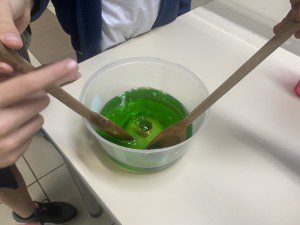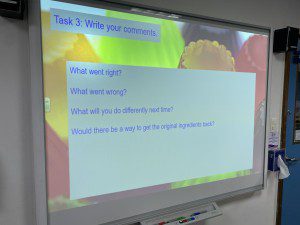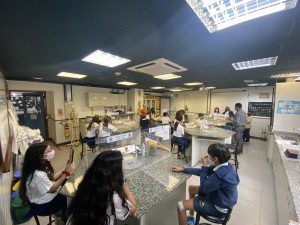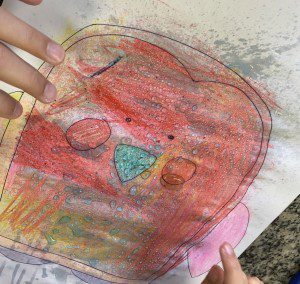Our first full IPC units this term, in Class 3 (Year 5) and Class 4 (Year 6), ‘Making New Materials’ and ‘Existing, Endangered, Extinct’, respectively, both have a science focus.
In Milepost 3 (Upper Key Stage 2), teachers work hard to develop children’s understanding, at a deeper level, of a wide range of scientific ideas. In line with the curriculum expectations, we provide children with plenty of opportunities to talk about and explore their ideas, ask their own questions about scientific phenomena, and analyse relationships and interactions that exist in the natural environment.
In particular, there is an emphasis in school on children working scientifically, and as far as possible, they are encouraged to both take part in and reflect on scientific experiments. Many of these experiments can lend themselves well to the spirit of an IPC entry point, which serves to begin a new unit of work and provides an exciting introduction to the learning that is to follow.
For our Class 3 IPC unit, Making New Materials, children have started to find out about how materials can change and the processes involved. They learn, for example, how different materials can be shaped, combined, condensed, frozen, melted and even burned! As part of Class 3’s entry point for this unit therefore, teachers introduced children to the idea of material properties and how materials can change with a fun activity in which children made jelly.
It was great to see children’s enthusiasm about making jelly and hear their scientific ideas about the processes involved. Having followed step-by-step instructions for making jelly, and seeing the process from start to finish, children had the opportunity to record their observations online. They also began to reflect on the idea of irreversible changes by addressing the question of whether it would be possible to get the original ingredients back once the jelly was made. After having made the jelly, children were then given the opportunity to eat it…following our school hygiene protocols of course!
As part of Class 4’s IPC unit, Existing, Endangered, Extinct, children have started learning about the diversity of living species on our planet, as well as investigating key questions related to adaptation, classification and life processes. To kickstart this learning unit, Class 4 children enjoyed a wonderful entry point in the science lab. Following a carousel of five activity stations, children were introduced to relevant scientific ideas.
The practical activities comprised of the following:
Activity 1 – How do penguins stay dry?
Activity 2 – How is it possible for some animals to survive in freezing cold temperatures?
Activity 3 – What makes an effective bird beak?
Activity 4 – Can webbed feet help animals to swim faster?
Activity 5 – What are some of the different ways we can sort and classify animals?
Split into groups of five, children spent about ten minutes on an activity, taking part in the experiment, before moving onto the next activity.
As with the Class 3 entry point, it was fantastic to see children working collaboratively to discuss their scientific observations about animal adaptation and diversity during these activities.
Part of the success, I believe, of our science entry points in Class 3 and Class 4 is because they have challenged children to answer scientific questions through hands-on and fun activities. Children have started to draw conclusions based on their observations, using evidence to justify their ideas, and using their previous scientific knowledge learnt in previous years to explain their findings.







